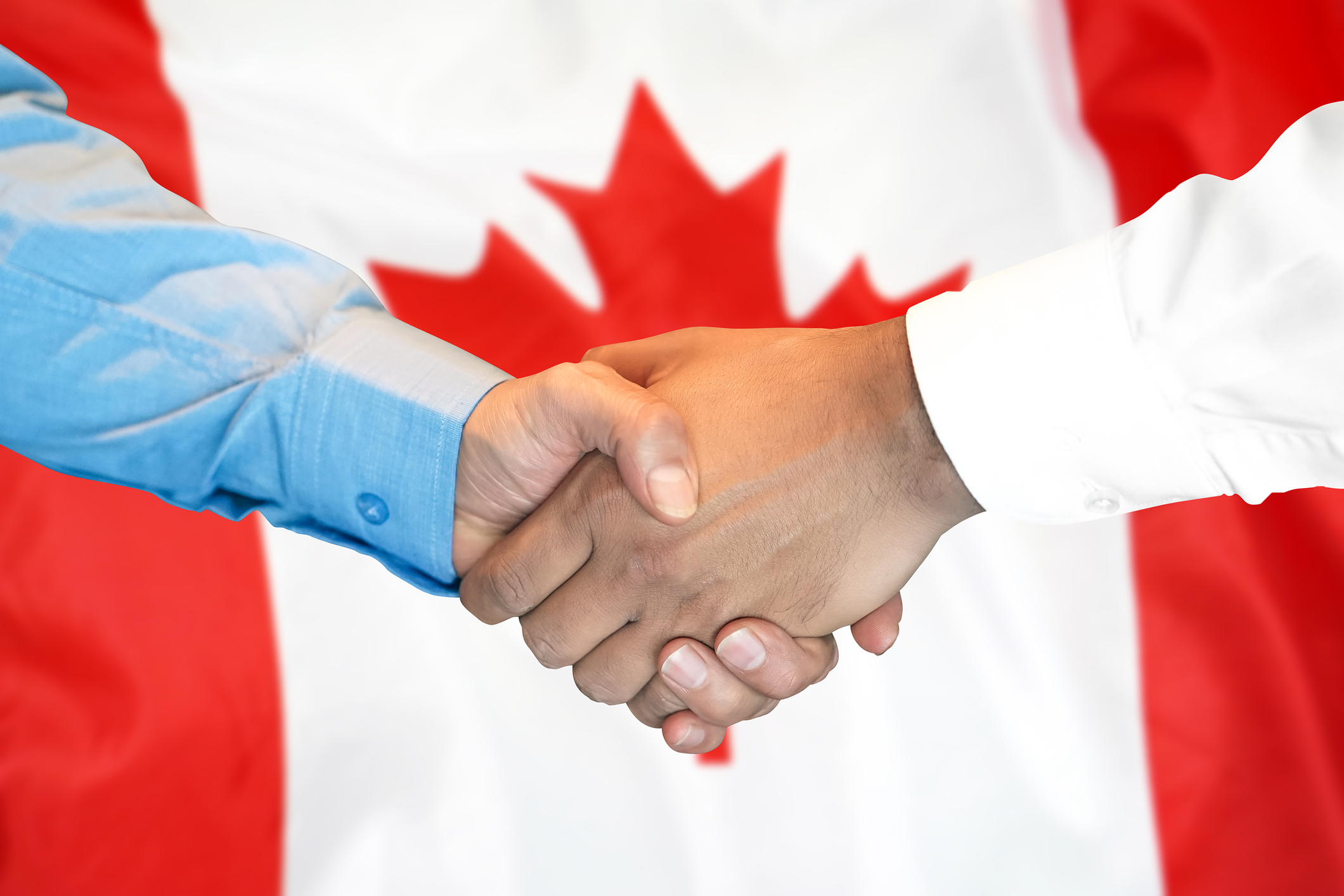
Interviewing in Canada is not wholly unlike interviewing in many other countries. No matter where you are, it is always smart to be prepared, be professional, be engaged and, then, be patient. However, there are some key things to know that could help you in your interview preparation, as well as during the interview and post-interview in Canada. Here are 10 things to know about interviewing in the Great White North.
- Many free services are available to help you prepare for an interview: Many settlement services, government employment offices, and even libraries across Canada offer programs and workshops to help jobseekers improve their interview skills. Many of these services are provided at no cost. Do a little research and find one that might help you be extra prepared.
- Interviews are almost the same across Canada, regardless of language: The majority of interviews have a behavioral-based question component. Typical questions are easy to find through career resource centers or career websites. Start by compiling a set of questions you think you will be asked. Then prepare responses that draw from prior relevant experiences. Preparing for a successful interview is virtually the same across Canada, regardless of whether the meeting will be in an English-speaking or French-speaking part of the country. In Quebec, for example, an interview most likely will be conducted in French, unless it is with an Anglophone institution or an international organization. Even then, a portion of the interview may be in French, if only to assess your level of fluency. It should become evident when you do company research whether the interview will be in English or French. The language in which you were contacted to set up the interview is also a strong indicator. If you are unsure, simply ask beforehand.
- Wear standard North American/European business attire: A neat, clean appearance will leave a positive impression that may make the difference when it comes to the second round of interviews. If unsure of what to wear, keep in mind that it is better to be overdressed than underdressed. A useful tip is to dress one or two steps above the everyday wear required from employees at that company. Canadians wear traditional North American/European business attire. Basic interview dress for a woman is a business suit or dress with low-heeled shoes. For men, it is a conservative suit, white dress shirt and simple tie. Simple accessories are acceptable.
- Punctuality is the norm; arriving late for an interview is extremely unprofessional: Punctuality is the norm in Canada; arriving late for an interview is extremely unprofessional. You should arrive at the interview location at least ten minutes early. If you are unfamiliar with the location, it is a good idea to visit the day before. Avoid being delayed by unexpected traffic or transit interruptions by leaving extra time for your commute. Winter storms can dramatically increase commute times, as can road construction. Have the name and phone number of the person you will be meeting just in case. Remember: being early is always preferable to arriving late!
- Use titles when appropriate: Greet the interviewer(s) using their title and last name (e.g., Mme. Durand, Mr. Thompson). If the interviewer has a title such as Dr. (doctor), Lt. (Lieutenant) or any other professional title, address them as such (e.g., Doctor Campbell, Lieutenant Beauclerck). If, during the interview, the interviewer introduces themselves by their first name, you may call them by it. But do not assume that the other interviewers, potential work colleagues or potential manager will want you to address them by their first names. Using someone’s first name is on a case-by-case basis. When in doubt, use the traditional greeting of title and last name.
- Do not boast; modesty is valued in Canada: Do tell of your accomplishments when asked, but do not be boastful or haughty about them. That is not the Canadian way.
- Non-verbal communication is key in Canada: Maintain an enthusiastic and positive demeanor throughout the interview. Remember to smile, be polite and demonstrate modesty. In Canada, non-verbal communication — including facial expression, body position, movements and tone of voice — is extremely important. During the interview, behave naturally and maintain eye contact, but do not stare. Keep your hands out of your pockets and away from your mouth and hair. Good posture will project confidence.
- It’s common to go through at least two interviews before being offered a job: Job interviewing in Canada has few guidelines, although in many cases you should expect to go through at least two interviews before being offered a job. You will be making an impression from the moment you enter the building, so be polite to the receptionist or any other employees. Greet the interviewer with a firm handshake and smile, accompanied by eye contact. Do not take a seat until you are invited to do so.
- It is illegal for employers to ask questions from certain “protected categories”: Canadian employers cannot screen applicants based on or to ask questions relating to:
- age
- citizenship
- disability
- marital status or family status (e.g., “Do you plan to start a family?”)
- race or ethnic origin (e.g., “Where is your accent from?”)
- receipt of public assistance
- record of offenses
- religion
- sex or sexual orientation
If you are asked such a question, you may choose to reply, but keep in mind that supplying such information may adversely affect your chances of getting the job. You have the right to refuse to answer such questions but take care to phrase the refusal non-confrontationally. Also, you might examine the question and try to identify what concern lies behind it. For example, if an employer asks whether you are a Canadian citizen, you can reply that you are authorized to work in Canada.
- Send a post-interview thank you note. It’s a nice touch to send a thank you note via email to the contact and/or interviewer(s) within one or two days after each interview. The email should address each person by name. If you omitted a key piece of information during the interview, you can briefly mention this in the thank you note. Keep contact with the potential employer to a minimum. In Canada, the waiting time after you have completed the interview process is on average 22 days, but the wait time can be longer than that or shorter. It is acceptable, two weeks after the interview – if you haven’t heard from the employer and after you’ve sent a thank you note – to politely request an update. Email rather than call, as phoning might seem intrusive.
Follow @goinglobal Tweet to @goinglobal



